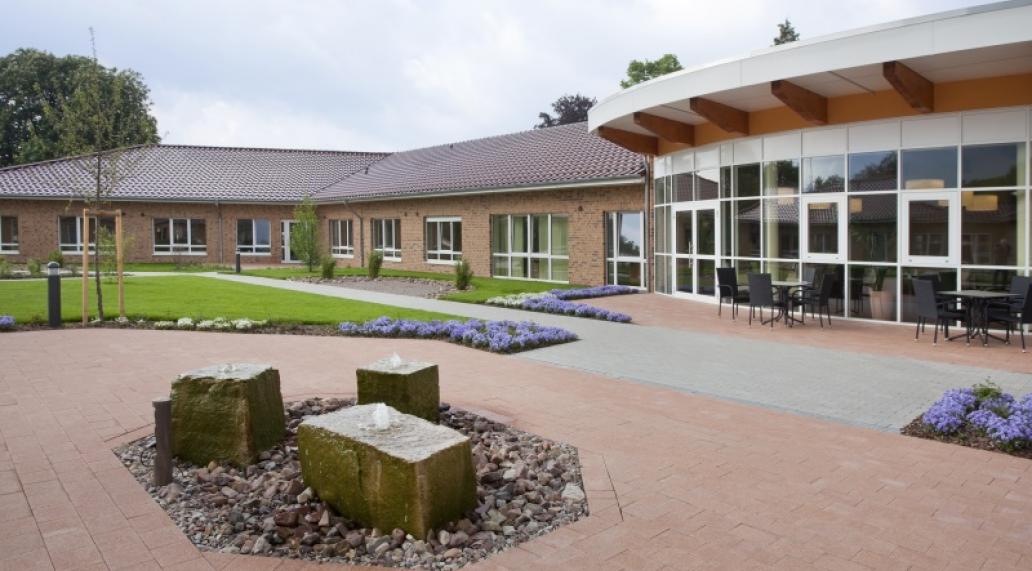
A supermarket where you can pay with tissues or cookies, a cafeteria and a shared kitchen, green space and a sensory garden among several residential buildings with shared apartments, where residents can decorate the rooms to their own taste and are not subjected to the schedule of a nursing home – up to this point, everyone actually likes the "Alzheimer Village" project.
What divides opinions, however, is the fence around the facility near Hameln. Critics say the residents are imprisoned there. Supporters of this new form of living counter that they are being protected from themselves.
Because dementia patients in an advanced stage are difficult to supervise: they often have the urge to explore the area or run away, but then become disoriented and get lost like small children, which can also frighten the patients themselves and become dangerous for them at a certain point. Whether a residential facility for dementia patients with fencing is suitable for the dependent parent can and must be decided by the relatives to the best of their knowledge and conscience, and they are almost exclusively enthusiastic.
Residents of a community specifically designed for dementia patients benefit both physically and mentally. In a regular nursing home, neither are the caregivers prepared for severe dementia patients, nor is the environment pleasant for the patient themselves. It is not uncommon for dementia patients to receive medication intended to calm them, to make everyday life in the nursing home smoother—a very controversial issue, especially compared to the impressive statistics on longer life expectancy and better quality of life in dementia villages.
What has been running with broad acceptance as a model project in the Netherlands for over 5 years is now slowly taking root in Germany: Similar to the Dutch dementia village Hogeweyk, since March 2014, more than 40 people with dementia have been living in the Tönebön am See facility. Compared to the Dutch dementia village, it is a small facility - it is designed for 52 residents, while Hogeweyk accommodates 153 people in need of care.
The German nursing home with a village character, covering nearly 11,000 square meters, is as large as a football field, bordered by a shoulder-high chain-link fence, and all caregivers are specialized in dementia. The cost of accommodation is only €200 more than that of a conventional nursing home. The village is structured into 4 residential buildings, with each divided into shared apartments accommodating up to 13 residents. Everyone has a private bathroom and can furnish their room according to their own preferences, although basic furniture is provided. Relatives praise the new concept as pleasant and familial and are universally glad to know their dependent parents are so well cared for.
It's a sham world, and people are being duped," say the opponents of the model project, including a renowned sociologist specialized in dementia and aging: "Old, sick people are simply outsourced, it seems like a kind of leper colony," criticizes Professor Reimer Gronemeyer. For him, this living situation is comparable to "The Truman Show.
Relatives, caregivers, and the home management find this perspective absurd. As long as the dementia patients are well, benefiting from the care and attention specialized for them, there is nothing objectionable about this new form of living; on the contrary. The patients live in their own world anyway, says a relative. Shouldn't we simply accommodate them in a way that matches their worldview?
In the future, seniors will be able to discuss this themselves with their children, as long as they are still mentally fit. Those who now live in the dementia village could not do that. But it won't stay that way. The currently estimated 1.4 million people with dementia in Germany are expected to double to 3 million by 2050. And those are only the ones who will then need round-the-clock care. So, it is wise for us to think about future forms of living.
Dementia village in Holland: http://www.welt.de/gesundheit/article122816427/Das-Dorf-in-dem-alle-Bewohner-demenzkrank-sind.html
Germany's First Dementia Village: http://www.sueddeutsche.de/leben/deutschlands-erstes-demenzdorf-eingezaeunte-freiheit-1.2116704
Homepage of the dementia facility Tönebön am See near Hameln: http://www.toeneboen-stiftung.de/pflegeheim/toeneboen-am-see/konzept.htm


